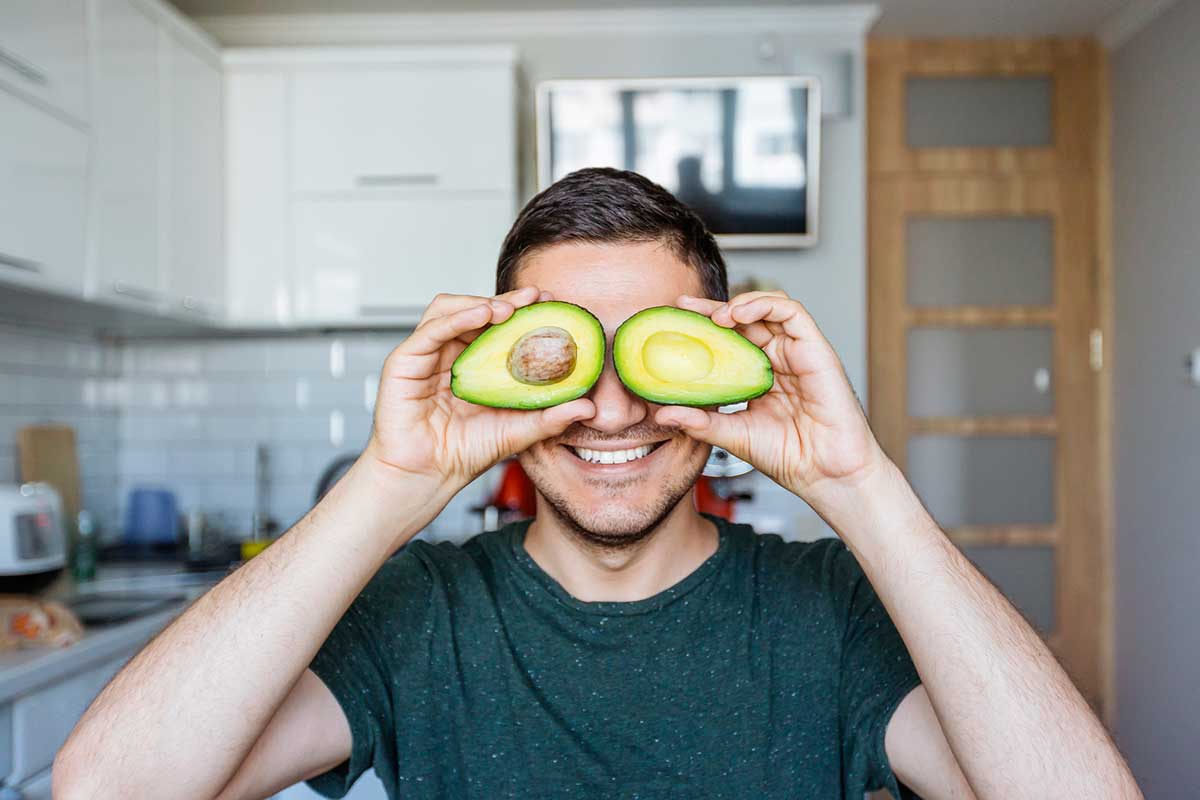Healthy Doesn’t Have to be Hard
Jun 24, 2019

You wouldn’t know it by the endless stream of diet and fitness fads, but there’s really no big mystery to getting and staying healthy.
Maybe it’s just human nature to get bored with the tried and true. Or maybe it’s simple avoidance of what seems too difficult to work into our busy lives. But healthy doesn’t have to be hard.
The payoff of a healthier you is well worth it. Paying attention to a few small things can make a big difference in your life overall.
Eat well
We understand. With a busy schedule, it’s hard to maintain a healthy diet. But men are at a higher risk of heart disease, and diabetes is on the rise in the United States. A few ways to eat better include:
- Remember most fast food places have salads and fruits on the menu these days. Swap out the fries or the greasy burger for something healthier.
- Eat more! … of the good stuff, that is. Increase your fish, fruits and vegetables.
- Experiment … with salt substitutes, fresh herbs and other flavorings so you can cut down on your salt intake.
Move more
You may know exercise improves cardiovascular health, lowers your risk of diabetes and helps lower cholesterol. Did you movement also keeps joints and connective tissues flexible and increases alertness and mental clarity? To get more movement into your days:
- Build movement in by parking farther away, taking the stairs, and enjoying the scenic route.
- Fight desk drudgery by setting an hourly reminder to get up, even if all you can do is walk a few circles around your desk and stretch. Just get your blood moving and your joints and muscles working, before you find yourself dozing.
- Make it fun with pickup basketball games, tennis, or take your pet for more walks. (It is good for our furry friends too!)
- Make it meditative by swimming laps, running, or doing yoga or tai chi.
- Aim for 150 minutes a week of moderate-intensity exercise.
Stress less
If you exercise more, you’re already ahead of the stress game. Here are a few more things you can do to cut more stress from your life:
- Sleep! Easy, right? Not for everyone. Help yourself get better sleep by going to bed at the same time every night and getting up at the same time every day, even weekends. This helps set your internal clock.
- Clear the clutter. Some of us just can’t function in a messy home or work space. Organizing things can help you get more focused on your priorities and allow you to let go of the little stuff that’s been nagging you.
- Take a break! Even if you can’t go away on a fancy vacation, you should get away from work for more than a weekend and officially take time off. Give yourself time to do absolutely nothing or to take up a new hobby, read or do anything but work.
Get a checkup
"But I am healthy! I only need to go to the doctor if I am sick.” How do you know if you’re on the right track if you don’t let the doc look under your hood periodically? A regular checkup usually amounts to:
- Blood work to check blood sugar, cholesterol, and other common issues
- Simple office tests of your blood pressure, pulse, weight, and heart and lung sounds
- A review of your vaccinations
Yearly physicals build a narrative about your health so when the big problems arise, those issues can take the focus because the little things are under good control. Regular checks of your blood pressure and signs of diabetes are also crucial. They are called “silent killers” for a good reason—they normally don’t have any symptoms until the damage has been done. You don’t wait for your engine to seize up before you check the oil, right?
As you age, there’ll be more, but why worry about that? Take your medicine now (by going to your doctor for regular checkups) so you don’t have to take more medicine later.
I generally talk to people about how yearly physicals build a narrative about your health so when the big problems arise, the big issue can take the focus because all the little things are already under good control.
High blood pressure and diabetes are called the “silent killers” for a reason. They normally don’t have any symptoms until the damage has been done. You don’t wait for your engine to seize up before you change the oil right?
I generally talk about having frank conversations with your family to know their health too so that you might know what things to look out for. Know your family health history!
William Patterson, DO
Related articles

The Gut-Brain Connection: How Your Mental Health Affects Your Gut Health
February 6, 2024

Gut-Healthy Foods: Eating for Your Digestive Health
February 6, 2024

How Looking After Yourself Benefits Your Whole Family
February 5, 2024